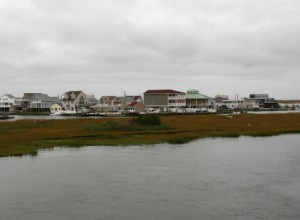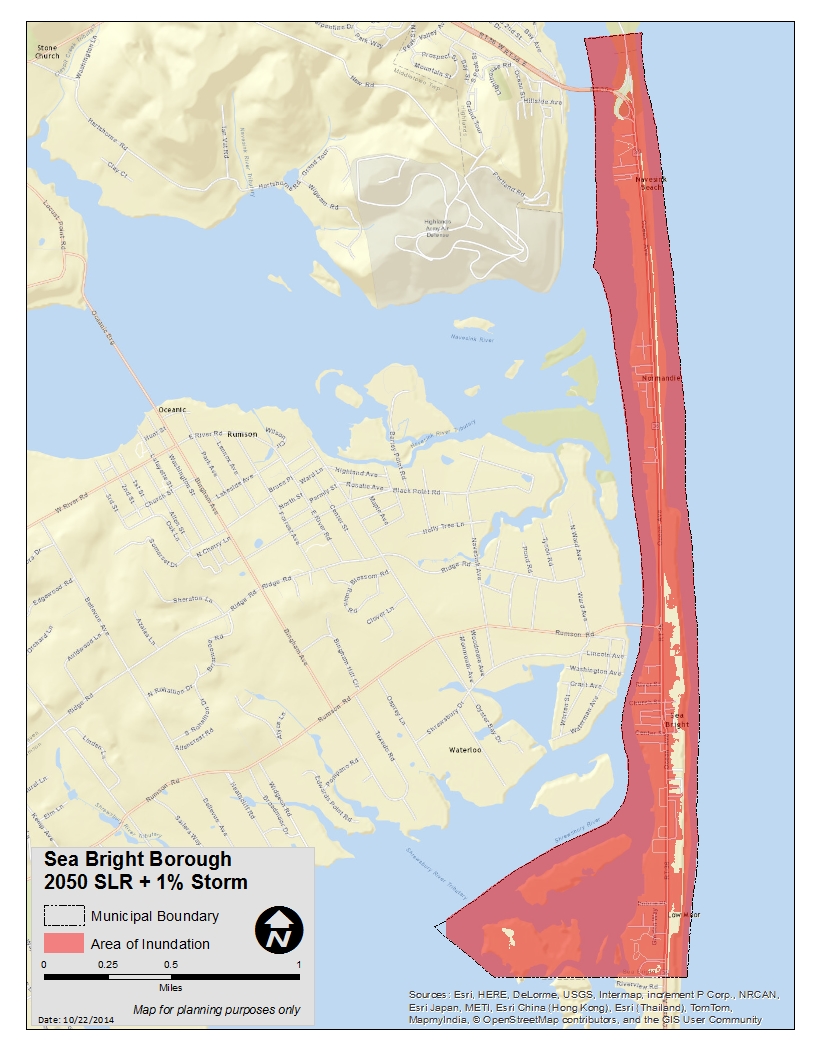New Jersey Future Blog
Would Buyouts Be Good for Flood-Prone Mystic Island?
February 18th, 2016 by David Kutner
Public information session will discuss findings from a new assessment.
 Representatives from New Jersey Future and Rutgers University are inviting all residents of Little Egg Harbor Township to a public information session to learn about the findings and recommendations from a health impact assessment (HIA) that evaluates the effects of buyout strategies on personal and municipal health in the Mystic Island section of the township.
Representatives from New Jersey Future and Rutgers University are inviting all residents of Little Egg Harbor Township to a public information session to learn about the findings and recommendations from a health impact assessment (HIA) that evaluates the effects of buyout strategies on personal and municipal health in the Mystic Island section of the township.
The project team will be available at 6:30 p.m. on Feb. 25, 2016, at the Little Egg Harbor Township Building, 655 Radio Rd., to discuss the project prior to making a formal presentation to the Township Council at 7:30 p.m. at its regularly scheduled meeting. Anyone who is interested is invited to attend.
Intended primarily to remove people from harm’s way in flood-prone areas, a buyout is a purchase of private property using government funds, with the condition that the structures on the property are demolished and land is returned to open space.
The HIA focused on using a buyout program as an approach to reduce future flooding, storm and rising sea-level vulnerability specifically in the Mystic Island area of the township. The HIA was undertaken by the Planning Healthy Communities Initiative at Rutgers University in partnership with New Jersey Future. Some of the findings that will be discussed include:
- How Hurricane Sandy affected the mental and physical health of Mystic Island residents, and how it continues to play a role in community stress and anxiety in the aftermath of the storm;
- How buyouts could affect municipal and school tax revenues, and how that might affect the levels of service the municipality and school district could provide;
- How Hurricane Sandy and a concentrated buyout effort might affect neighborhood cohesion and the social character of Mystic Island;
- Whether and how buyouts can be used to create more extensive open space to enhance buffer areas along Mystic Island’s natural shoreline and help mitigate wave and storm surge impacts;
- Whether and how purchased properties could provide opportunities for installing and fortifying bulkheads and a sea wall to protect remaining areas from future storm damage;
- What the potential health threats are from future storm damage, particularly to vulnerable populations such as the elderly, the disabled and lower-income families.
This health impact assessment is supported by Rutgers University through a grant from the Health Impact Project, a collaboration of the Robert Wood Johnson Foundation and the Pew Charitable Trusts. A health impact assessment is intended to help decision-makers identify potential health effects of proposed policies, projects, and programs, and make recommendations that enhance health benefits and minimize adverse effects and associated costs. The outcomes of the HIA are also intended to benefit decision-makers and residents of similar coastal communities in New Jersey and the U.S. that are plagued by chronic flooding and hurricanes.

















I read the article regarding mystic island and the flood problem. I recently bought a home there with the plan on retiring but hurricane sandy has delayed that thought. Maybe home owners especially second home owners should have been taken care of the same as full timers by fema so I could raise my home. I received about 70,777 thousand and am out of pocket about 55,000 thousand and still unable to raise. No ICC money because of house being a second home. Maybe talking to fema about this is a way to help